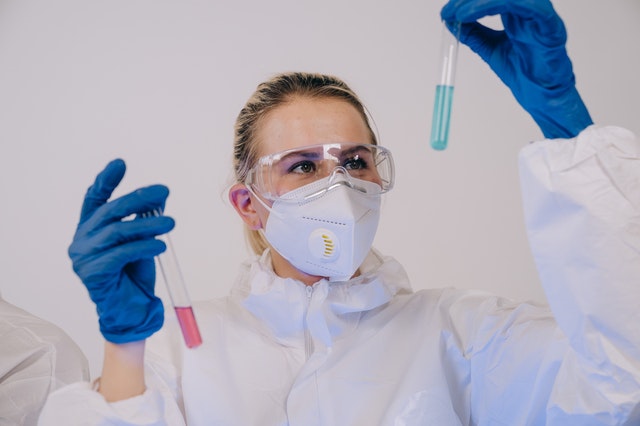Niacinamide is one of the two forms of vitamin B3 — the other being nicotinic acid. Vitamin B3 is also known as niacin.
Niacinamide and nicotinic acid both provide vitamin B3 activity, but they differ in chemical structure and how they affect your health.
This article explains what niacinamide is, its benefits, uses and potential side effects.
What Is Niacinamide?
Niacinamide is a form of vitamin B3 (niacin) — one of the eight B vitamins your body needs for good health.
Vitamin B3 plays a vital role in converting the food you eat into usable energy and helps your body’s cells carry out important chemical reactions (1Trusted Source).
Since it’s water-soluble, your body doesn’t store this vitamin, which is why you need to eat nicotinic acid or niacinamide daily.
Vitamin B3 is generally found as niacinamide in animal-based products, such as meat and poultry, and as nicotinic acid in plant-based foods like nuts, seeds and green vegetables (2Trusted Source).
Many refined grain products, including cereals, are also fortified with niacinamide (2Trusted Source).
Your body can also make vitamin B3 from tryptophan, an amino acid present in most protein foods.
However, the conversion of tryptophan to vitamin B3 is inefficient, as it takes 60 mg of tryptophan to make just 1 mg of vitamin B3 (1Trusted Source).
Historically, vitamin B3 was called vitamin PP, an acronym for pellagra-preventive.
That’s because a deficiency of vitamin B3 or tryptophan leads to a disease called pellagra, which is characterized by the four D’s — diarrhea, dermatitis, dementia and, if left untreated, death (3Trusted Source).
Pellagra is rare in developed countries like North America and Europe, but the disease is still frequent in some developing countries (4Trusted Source).
Nicotinic acid and niacinamide can both treat pellagra, but niacinamide is preferred since it’s associated with fewer side effects, such as flushing of the skin.
SUMMARYNiacinamide is a form of vitamin B3, an essential nutrient that supports many cellular processes. Niacinamide is found primarily in animal-based products and is the preferred form of vitamin B3 for treating pellagra.
Benefits and Uses
Aside from being the preferred form of niacin for treating pellagra, niacinamide has several other health benefits and uses.
Helpful for Certain Skin Conditions
Niacinamide plays an important role in keeping your skin healthy.
For this reason, it’s a popular additive in the cosmetic and skincare industry.
When applied topically or taken orally as a supplement, niacinamide has been shown to have anti-inflammatory effects on the skin (5Trusted Source).
It has been used to treat skin conditions like acne and rosacea, a facial skin disorder characterized by redness (5Trusted Source, 6Trusted Source).
This makes niacinamide a popular alternative to oral or topical antibiotics for treating acne or rosacea (7Trusted Source, 8Trusted Source).
May Help Prevent Melanoma
Melanoma is a serious type of skin cancer that develops in the cells that produce melanin, the pigment that gives your skin its color.
Exposure to ultraviolet (UV) radiation, either from the sun or tanning beds, damages the DNA of your cells over time and is strongly correlated with melanoma.
Owing to its role in keeping your cells healthy, oral supplements of niacinamide have been shown to enhance DNA repair in UV damaged skin in humans (9Trusted Source, 10Trusted Source).
As such, niacinamide is a promising supplement that may protect against melanoma, especially in high-risk populations, such as those who have had previous nonmelanoma skin cancers (11Trusted Source, 12Trusted Source, 13Trusted Source, 14Trusted Source).
The Bottom Line
Niacinamide is one form of vitamin B3 (niacin) that plays an important role in energy metabolism and cell health.
It may offer benefits related to skin care and skin cancer, as well as chronic kidney disease and type 1 diabetes.
Niacinamide is generally considered safe with few side effects at appropriate doses. It’s available as a dietary supplement and is a common ingredient in skin care products.
However, it’s best to consult with your healthcare provider before trying niacinamide.








